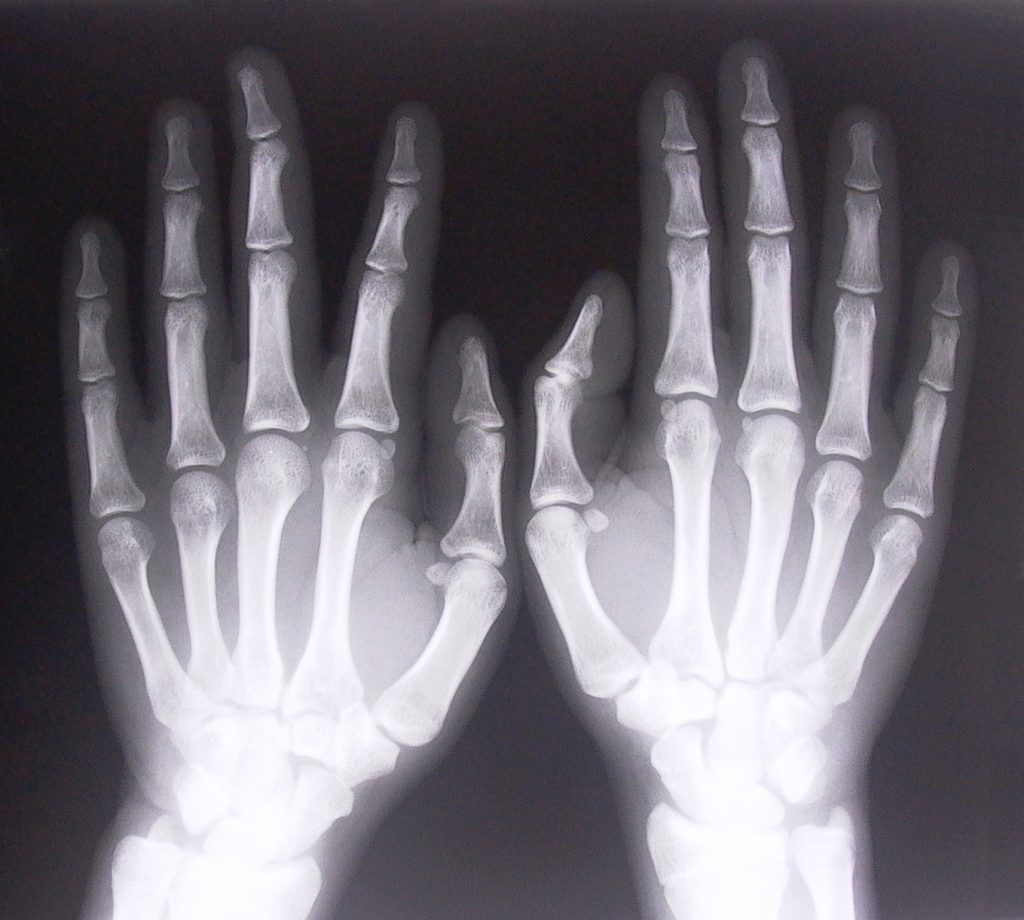 Discrimination can come in many forms and if you are faced with a potential workplace discrimination issue it is important to take your concerns to a good lawyer because the contours of discrimination cases can be very complicated. Esma Etienne, a waitress and bartender, found herself in just such a situation when she alleged that the general manager at the Spanish Lake Truck & Casino Plaza in New Iberia, Louisiana refused to trust and promote qualified employees simply because their skin was of a darker shade. According to Etienne, she was passed over for promotion to a managerial position at Spanish Lake because she was “too black.” Based on this belief that she had faced discrimination in the workplace, Etienne filed a Title VII suit in the Western District for Louisiana Federal Court.
Discrimination can come in many forms and if you are faced with a potential workplace discrimination issue it is important to take your concerns to a good lawyer because the contours of discrimination cases can be very complicated. Esma Etienne, a waitress and bartender, found herself in just such a situation when she alleged that the general manager at the Spanish Lake Truck & Casino Plaza in New Iberia, Louisiana refused to trust and promote qualified employees simply because their skin was of a darker shade. According to Etienne, she was passed over for promotion to a managerial position at Spanish Lake because she was “too black.” Based on this belief that she had faced discrimination in the workplace, Etienne filed a Title VII suit in the Western District for Louisiana Federal Court.
In support of her claim, Etienne presented an affidavit from a former manager at Spanish Lake stating that the general manager did not trust darker skinned black people with certain responsibilities, such as handling money. Further, the manager alleged that the general manager and his wife made several statements that Etienne was “too black to do various tasks at the casino.” In response, Spanish Lake argued that it hired a more qualified candidate than Etienne and the decision was based purely on merit. The district court agreed and granted summary judgment in favor of Spanish Lake. The court based its decision on its finding that Etienne had merely supplied circumstantial evidence, shifting the burden away from Spanish Lake and on to Etienne, and pointed to the fact that a majority of the managers at Spanish Lake were black. The court seemed to believe that the fact that so many managers were black was dispositive under Title VII and that the allegation that the discrimination was based on shade of skin was insufficient. The Fifth Circuit Court of Appeals did not agree. It reversed the grant of summary judgment in favor of Spanish Lakes and remanded the case for consideration by a jury.
The Fifth Circuit pointed out that while there had never been an explicit ruling in the circuit that color was an unlawful basis for discrimination in the workplace, the text of Title VII is clear that employment discrimination is prohibited on the basis of an individual’s “race, color, religion, sex, or national origin.” It was improper for the district court to rely so heavily on the fact that Spanish Lake had hired numerous black managers when the issue at bar was discrimination based on skin shade. Etienne was alleging that Spanish Lake discriminated based on the fact that she was too dark, not the fact that she was black.
 Louisiana Personal Injury Lawyer Blog
Louisiana Personal Injury Lawyer Blog


 Renting a U-Haul truck can be a necessary burden when you are tasked with moving a lot of stuff from place to place. During the rental process you might be asked whether or not you want supplemental insurance policies. But who do you sue when an accident happens? In the following case out of New Orleans, Louisiana one plaintiff finds out who definitely cannot be sued when a U-Haul and Fedex truck collide.
Renting a U-Haul truck can be a necessary burden when you are tasked with moving a lot of stuff from place to place. During the rental process you might be asked whether or not you want supplemental insurance policies. But who do you sue when an accident happens? In the following case out of New Orleans, Louisiana one plaintiff finds out who definitely cannot be sued when a U-Haul and Fedex truck collide. When attempting to bring a lawsuit in court, timing is everything. If a potential claim is brought too late your day in court may never come. However, Louisiana courts of law are generous in extending the deadline to file a lawsuit in instances of fraud. In the following case out of Jefferson Parish Louisiana, a Plaintiff learned that the deadline to file a legal malpractice lawsuit can be relaxed when fraud is employed to hide negligent representation.
When attempting to bring a lawsuit in court, timing is everything. If a potential claim is brought too late your day in court may never come. However, Louisiana courts of law are generous in extending the deadline to file a lawsuit in instances of fraud. In the following case out of Jefferson Parish Louisiana, a Plaintiff learned that the deadline to file a legal malpractice lawsuit can be relaxed when fraud is employed to hide negligent representation.
 Would you expect a routine trip to your local grocery store to end with a herniated disc and a possible need for surgery? Probably not. Trips to the grocery store are often without incident. However, people
Would you expect a routine trip to your local grocery store to end with a herniated disc and a possible need for surgery? Probably not. Trips to the grocery store are often without incident. However, people 

 The generally rudimentary question of “what is the ‘amount in dispute’” was anything but simple when Louisiana courts sought to determine whether settlement amounts should be considered “in dispute” in calculating jurisdictional limits. The Monroe Circuit Court sought to determine the “amount in dispute” in relation the subject matter jurisdiction of a City Court with a jurisdictional limit of $30,000. The issue to be determined was whether following the dismissal of the settling defendants, the City Court had jurisdiction over plaintiff’s claim against her uninsured motorist insurer to the full extent of that court’s $30,000 jurisdictional limit. The implications of this case are that it will be easier for injured individuals to remain in City Court if they allege damages less than the jurisdictional limit, despite whether they have previously settled a portion of their claim for an amount exceeding the jurisdictional limit.
The generally rudimentary question of “what is the ‘amount in dispute’” was anything but simple when Louisiana courts sought to determine whether settlement amounts should be considered “in dispute” in calculating jurisdictional limits. The Monroe Circuit Court sought to determine the “amount in dispute” in relation the subject matter jurisdiction of a City Court with a jurisdictional limit of $30,000. The issue to be determined was whether following the dismissal of the settling defendants, the City Court had jurisdiction over plaintiff’s claim against her uninsured motorist insurer to the full extent of that court’s $30,000 jurisdictional limit. The implications of this case are that it will be easier for injured individuals to remain in City Court if they allege damages less than the jurisdictional limit, despite whether they have previously settled a portion of their claim for an amount exceeding the jurisdictional limit. Not all Workers Compensation insurance claim decisions are black and white. Sometimes those claims can include an overlap with other federal statutes that may or may not also provide coverage. When those circumstances arise insurers need to base their decisions on the facts and the law and not for financial gain. If done properly the denial of a valid claim does not automatically subject an insurer to penalties in Louisiana as the following case demonstrates.
Not all Workers Compensation insurance claim decisions are black and white. Sometimes those claims can include an overlap with other federal statutes that may or may not also provide coverage. When those circumstances arise insurers need to base their decisions on the facts and the law and not for financial gain. If done properly the denial of a valid claim does not automatically subject an insurer to penalties in Louisiana as the following case demonstrates.  Sometimes you get hurt while working and it’s neither your fault nor your employer’s fault. In those cases the person that hurt you is called a “Third-Party Tortfeasor.” However, because you were hurt while working you may have rights to not only sue the person who hurt you but to also receive workers compensation benefits. Beware though, there are strict statutory rules that apply that dictate when you must file for medical and other benefits owed to you under the Louisiana Workers Compensation laws. The following case out of Calcasieu Parish shows why you need to consult the best workers compensation lawyer immediately upon an injury that occurs while on the job.
Sometimes you get hurt while working and it’s neither your fault nor your employer’s fault. In those cases the person that hurt you is called a “Third-Party Tortfeasor.” However, because you were hurt while working you may have rights to not only sue the person who hurt you but to also receive workers compensation benefits. Beware though, there are strict statutory rules that apply that dictate when you must file for medical and other benefits owed to you under the Louisiana Workers Compensation laws. The following case out of Calcasieu Parish shows why you need to consult the best workers compensation lawyer immediately upon an injury that occurs while on the job.